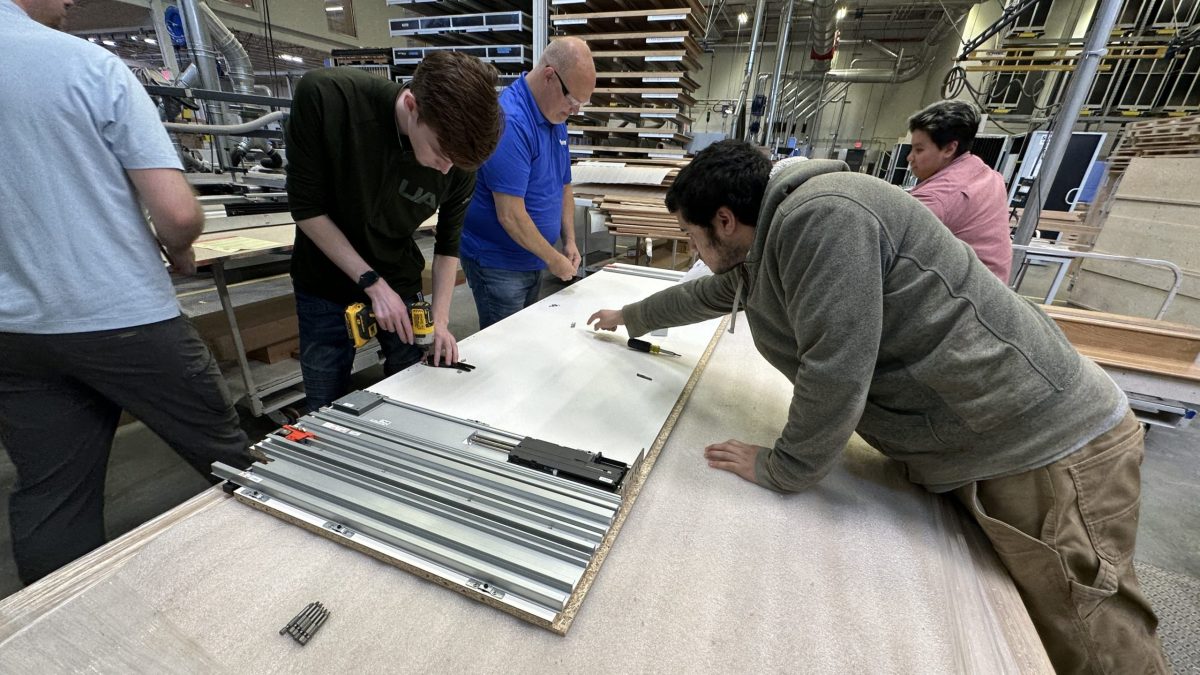Each summer, a select group of high school graduates embarks on a transformative journey through the Holz Technik Registered Apprenticeship Program in Jersey City, New Jersey. This program, recognized as a national model for business-higher education partnerships, offers participants an opportunity to secure stable employment while earning two college degrees at no cost. After completing the rigorous five-year curriculum, apprentices can secure jobs with salaries reaching as high as $70,000.
The Holz Technik Registered Apprenticeship Program is a collaboration between Hudson County Community College (HCCC) and Eastern Millwork, Inc., a local company specializing in custom architectural woodwork for various sectors, including corporate offices and healthcare facilities. The program allows apprentices to simultaneously work at Eastern Millwork and take college courses, effectively blending work experience with academic learning.
Upon joining the program, apprentices begin their journey with a starting salary of $31,500 and receive comprehensive benefits. As they progress through the program, they benefit from incremental salary increases and gain valuable hands-on experience in engineering and woodworking. By the end of the five years, participants not only acquire the skills necessary for their roles but also advance to the position of engineer within the company.
This innovative approach to career development emphasizes the importance of practical experience in education. According to data from HCCC, the program has successfully helped numerous young adults launch their careers without the burden of student debt. Graduates leave the program equipped with marketable skills and the potential for upward mobility in their careers.
The success of the Holz Technik Registered Apprenticeship Program highlights the significance of collaboration between educational institutions and businesses. By investing in the next generation of engineers, programs like this create pathways to success for young people while addressing the growing demand for skilled labor in the engineering sector.
As the program continues to evolve, it serves as an exemplary model for other regions seeking to develop similar apprenticeship initiatives. The impact on participants is profound, as they gain not only financial stability but also the confidence and skills necessary for thriving careers in engineering and beyond.





































































